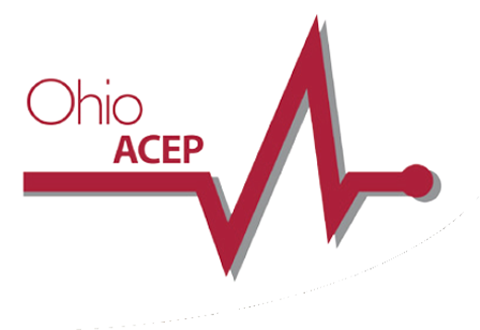Take Action
Get Coffee With Your Legislator
How to make the most of your meeting
Prepare: A little research goes a long way. Know the legislative goals and initiatives of emergency physicians and the legislative goals and initiatives of your legislator. Get some background on the legislative process.
Go have coffee: Make an appointment by calling your legislator’s capitol office. You can get their office’s phone number by looking them up by your ZIP code. When you call, tell the staff member who answers who you are, your profession, and that you are a resident of the legislator’s district. If you want to discuss a certain issue or bill, let them know, but be sure to also offer to be a resource for healthcare issues!
Establish a goal and agenda for the meeting: Keep the issues to a minimum and stick to those issues. A legislator’s time is valuable, so make the most of your time with them.
Listen, listen, listen: Just like in any interaction, good listening skills are key! In addition to what they say, listen to how they say it—non-verbal cues can help you understand how a lawmaker feels about the issue.
Personal stories are persuasive: Legislators hear facts and figures constantly. If you want their attention, put a human face on an issue. Rather than telling them how psychiatric boarding has affected ED wait times, tell them about a story about a patient who was personally impacted.
Be positive: Just as important as identifying problems in health policy is offering potential solutions. Don’t just gripe about defensive medicine; tell them how it can be solved.
Don’t pretend to know what you don’t know: If you can’t answer a question, say so! There’s nothing wrong with saying “I’m not sure. I’ll have to get back to you on that.”
Follow up! It’s important to send a note thanking the legislator for meeting with you. It’s also a good idea to briefly summarize what you discussed to help drive home your message.
Write a Letter to Your Legislators
Tips on writing a persuasive letter
1. Find your legislators: If you don’t already know your legislators, look them up using your ZIP code:
| Find your state legislators | Find your U.S. Senators | Find your Member of Congress |
2. Address your legislators correctly: Be sure to use the right name, address, and salutation
Addressing State Legislators |
Addressing Federal Legislators |
Ohio SenateThe Honorable [first & last name] [Letter text] |
U.S. SenateThe Honorable [first & last name] [Letter text] |
Ohio House of RepresentativesThe Honorable [first & last name] [Letter text] |
U.S. House of RepresentativesThe Honorable [first & last name] [Letter text] |
1. Identify yourself: Let your legislator know you’re an emergency physician and a member of Ohio ACEP. And if you live in the legislator’s district, let them know!
2. Identify the legislation you’re writing about: Whenever possible, refer to a specific bill by name, number, or both. Make it crystal clear what your position is and what you would like your legislator to do.
3. Less is usually more: Keep your letter brief, specific, and straightforward. Legislators and their staffs are busy, and they will appreciate your consideration of their time.
4. Be polite: No one likes to be strong-armed or pressured, and legislators are no different. High-pressure tactics are self-defeating. Remember, even if you disagree with the legislator, the goal is become allies.
5. Back up your position with evidence: If possible, use facts and figures to support your case.
6. Back up your evidence with a story: After bolstering your case with a statistic, consider relaying a brief anecdote about how the issue affected you or a patient personally.
7. Be an ally: Legislators can’t be experts on every subject, so offer to provide them with additional information. Let them know you’re willing to be of further assistance and offer yourself as a resource on health issues.
8. Timing is key: The letter should arrive after a bill has been formally introduced. The legislator will be more likely to give your letter thoughtful consideration during the period when the legislation is up for study and action.
9. Don’t be afraid to follow up: If you don’t get a reply, write again. Keep up on the bill’s progress, and if your legislator pleases you with their vote, write to tell them so. A complimentary letter will be remembered the next time you write.
Write a Letter to the Editor
Physicians are leaders in their communities, and newspapers are still a great way to reach a local or regional audience, share an important policy positions, or even set the record straight on an article the newspaper already published.
1. Respond to a specific article if possible: The best letters to the editor are replies to articles that the paper already ran. Not only does it give you a chance to set the record straight or add more complete information, your letter will be more likely to be published if it’s a direct response to an editorial, op-ed, or other article.
2. But if you can’t… Sometimes papers will print letters to the editor which aren’t about a specific article. If your letter doesn’t reference an already-published article, begin by stating your concern that the paper hasn’t focused on this important issue.
3. Follow the publication’s directions: Specifics on how and to whom to submit a letter to the editor can usually be found right on the letters page in the newspaper or on its website. This often includes information on what the paper looks for when reviewing letters for publication. Follow these guidelines! It will greatly increase the likelihood that your letter will be published. If you can’t find the information you need, just call the newspaper or email them for information.
4. Be timely: Respond to an article within a few days of its publication.
5. Share your expertise: As a physician, you have a wealth of knowledge about the practice of medicine and healthcare issues. Tell them upfront that you’re an emergency physician so they know that you’re an authority on the subject of the letter.
6. Refer to the legislator you hope to influence: If you refer to a legislator or public official by name, chances are their staffers will see it and give the official the letter to read personally – they monitor media coverage closely! Avoid negative or pressuring language when you refer to the legislator. No one likes to feel strong-armed, and putting the legislator on the defensive is self-defeating.
7. But be sure to remember your audience: Obviously, the audience for local newspapers isn’t just doctors and legislators. Try to avoid lots of medical or legislative jargon and keep the letter as broad as possible while still getting your point across.
8. Keep your letter focused and interesting: Generally, letters should be under 200 words, and limiting your word count to 150 is even better! Try to get to the main point in the first couple sentences. If possible, include interesting facts, relevant personal experience, and any local connections to the subject.
9. Respond, advocate, and issue a call to action: Most letters to the editor follow a standard format. Open your letter by refuting, correcting, or adding more complete information to the article to which you’re replying. Use the next few sentences to back up your claims and advocate for your position. Try to be positive. Then wrap up your letter by explaining what you think needs to happen and make your call to action!
10. Include your contact information: In your letter, don’t forget to give your name, address, and daytime phone number. The newspaper will contact you before printing your letter.
11. Follow up! If your letter is printed and specifically references a public official, clip the letter and send it to them with a brief cover note. Tell them you appreciate their consideration and would be happy to provide more information.
Host an Emergency Department Visit
Legislators are looking for information about our health care system – where it works and where it doesn't work. As the front-line of our nation's health care delivery system, emergency physicians are well-positioned to provide that information by giving legislators a firsthand look at the challenges you face each day.
Interested in hosting an emergency department visit for your state legislators? We can help! Email us at advocacy@ohacep.org or give us a call at (614) 792-6506.
Stay Up To Date
Advocacy Updates are sent to all Chapter Members in our monthly Member eNews. These updates cover the very latest on issues affecting emergency physicians and the practice of emergency care in the state of Ohio.
Click Here to view the current updates.


